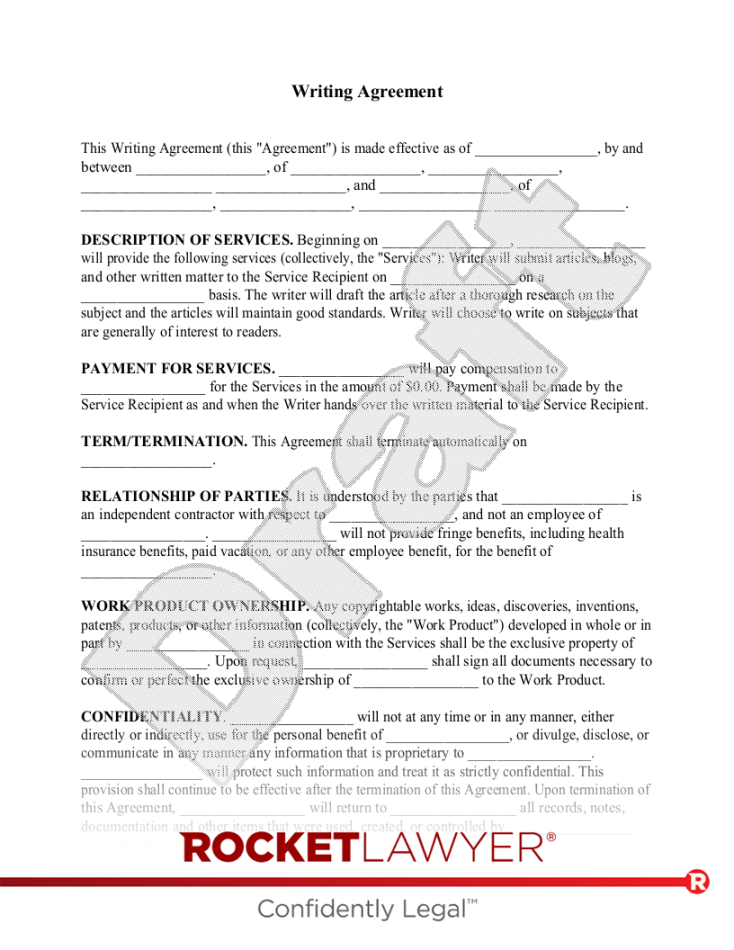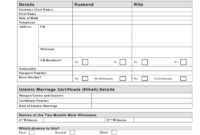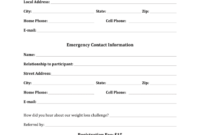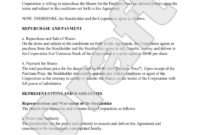A freelance writer agreement template is a legal document that outlines the terms and conditions between a freelance writer and a client. It serves as a contract that protects the interests of both parties involved in a freelance writing project. When creating a freelance writer agreement template, it is crucial to use formal English and design elements that convey professionalism and trust.
Essential Sections of a Freelance Writer Agreement Template

1. Parties Involved: Clearly state the names and contact information of both the freelance writer and the client. This section should also specify the legal entity (e.g., sole proprietor, LLC) of each party.
2. Project Description: Provide a detailed description of the project, including the scope of work, deliverables, and deadlines. This section should be specific and unambiguous to avoid misunderstandings.
3. Compensation: Outline the payment terms, including the total fee, payment schedule, and payment methods. Specify whether the fee is for a fixed rate or hourly rate.
4. Ownership and Copyright: Clearly define who owns the copyright to the completed work. This section should also address the client’s rights to use and reproduce the work.
5. Confidentiality: Specify the confidentiality obligations of both parties. This section should protect any proprietary information or trade secrets shared during the project.
6. Revisions and Approvals: Outline the process for reviewing and approving the completed work. Specify the number of revisions allowed and the timeframe for providing feedback.
7. Termination: Specify the conditions under which either party can terminate the agreement. This section should include provisions for breach of contract and dispute resolution.
8. Governing Law and Jurisdiction: Specify the governing law that will apply to the agreement and the jurisdiction in which any disputes will be resolved.
Design Elements for a Professional Freelance Writer Agreement Template
1. Layout and Formatting: Use a clean and professional layout that is easy to read and understand. Choose a font that is legible and consistent throughout the document. Use headings and subheadings to organize the content and improve readability.
2. Branding: If applicable, incorporate the client’s branding elements, such as their logo and color scheme. This will help to create a cohesive and professional look.
3. Legal Disclaimer: Include a legal disclaimer at the beginning or end of the document to protect the client from liability. This disclaimer should state that the template is for informational purposes only and does not constitute legal advice.
4. Signatures: Ensure that both parties sign the agreement to make it legally binding. Provide a space for signatures at the bottom of the document.
Additional Considerations
Consult with an Attorney: While a freelance writer agreement template can be a valuable resource, it is always advisable to consult with an attorney to ensure that the document meets your specific needs and complies with applicable laws.
By following these guidelines and incorporating the essential sections and design elements, you can create a professional freelance writer agreement template that protects your rights and establishes a clear understanding with your clients.


